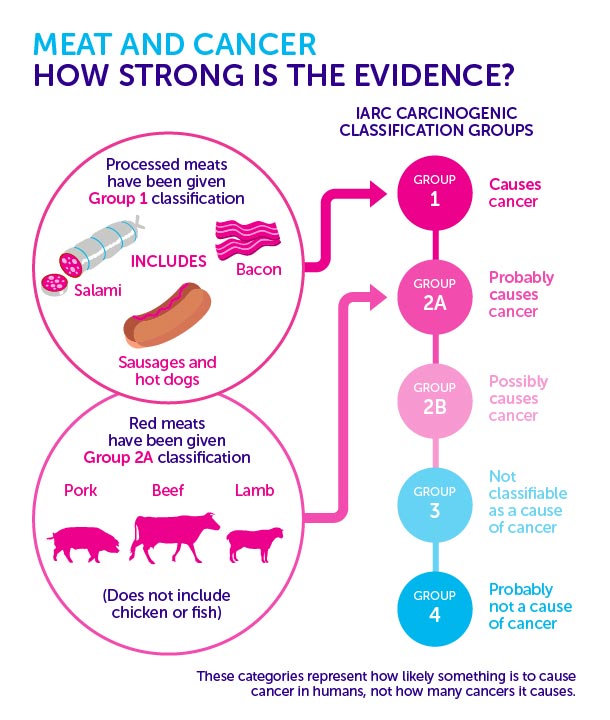Does Bacon = Cancer?
What does the World Health Organization’s classification of processed meat as a Class 1 carcinogens actually mean for you? What you need to know to eat safely & sound smart.
1. How much bacon is too much?
You would have to eat 50g of processed meats every day to increase your risk of colorectal cancer by 18%. That’s 6 pieces of bacon, 2 slices of Canadian bacon, 1 hotdog or 2 slices of ham.
2. How many cancer deaths per years could be connected to processed meat?
According to the most recent estimates by the Global Burden of Disease Project, an independent academic research organization, about 34,000 cancer deaths per year worldwide are attributable to diets high in processed meat.
Let’s put those in context, there are:
- 1 million cancer deaths per year globally due to tobacco smoking
- 600,000 per year due to alcohol consumption
- more than 200,000 per year due to air pollution.
3. Why are processed meats carcinogenic?
Research isn’t definitive, but the main culprits seem to be chemicals called N-nitroso compounds.
These come from Haem, which is in the meat itself, as well as ingredients used to preserve meat—such as nitrates.
When broken down in the gut, Haem and Nitrates form a family of chemicals called N-nitroso compounds.
These may damage the cells that line the bowel, so other cells need to replicate to heal. This “extra” replication increases the likelihood of mistakes in the DNA—which can lead to cancer.
4. How can you protect yourself?
- Buy nitrate-free processed meats as an alternative. Also limit the intake of processed meats with celery juice, which also happens to be high in carcinogenic natural nitrates.
- Get screened! Colorectal cancer screening is believed to be a form of cancer prevention, not just early detection.
Take the guesswork out of finding the right products for you, your tastes and preferences with Ingredient1.

